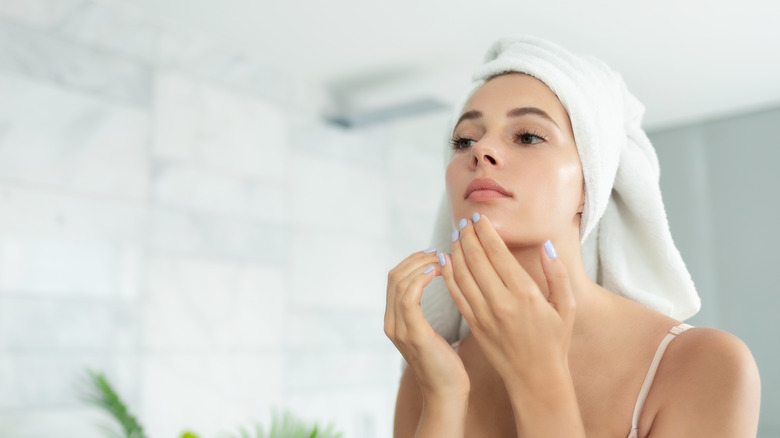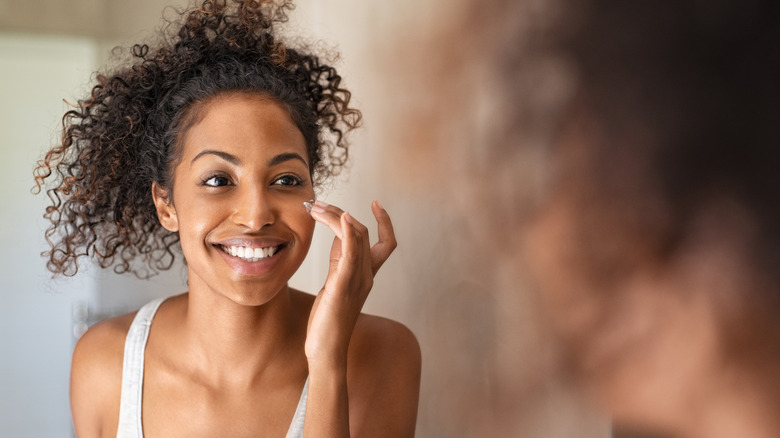Here's How To Zap The Chin Acne You Get Around Your Period
Your hormones impact nearly every biological process in your body. When you notice areas of congestion or dryness on your skin, you can usually thank your endocrine system for the heads up that something is out of whack. Indeed, Byrdie notes, chin acne is usually the result of hormonal fluctuations, meaning that it often appears around your period.
The outlet explains that these blemishes come in different forms like zits, blackheads, cystic pimples, and nodules. Furthermore, common culprits include bacteria, hormonal changes, and too little exfoliation. About a week before you get your period, you may notice more breakouts than usual. Since estrogen is lowest during this time in your cycle, it contributes to the formation of acne in this area. Estrogen is responsible for keeping your skin clear, meaning that, when it drops, your skin is more prone to breakouts.
Making matters worse, your testosterone levels increase, the outlet reports. Since this hormone is responsible for sebum production, your skin can more easily fall victim to build-up. Lastly, your progesterone count spikes, which accounts for a constriction in your pore size. With three of your reproductive hormones changing so drastically, your face can become a breeding ground for acne. Luckily, if you care for your skin accordingly, you can mitigate this issue.
Chin acne can also come from dead skin cells
With your hormones fluctuating so rapidly, it's important to keep your skin clear of pore-clogging particles. Byrdie recommends exfoliating regularly, especially before and during your period. However, it's important to reach for a product that exfoliates chemically rather than mechanically. In other words, avoid products with physical abrasives like beads and use one with gentle resurfacing ingredients.
Melissa Kanchanapoomi Levin, MD notes, "If your skin is not irritated and can tolerate an exfoliator, try alpha-hydroxy acids or salicylic acid two to three times weekly."
Furthermore, a retinoid treatment will also help curb the incidence of hormonal breakouts. "Retinoids help your skin slough off dead skin cells at a more normal rate so the dead skin cells don't bind together and clog your pores," Marina Peredo, M.D. tells Self. "They are the preferred avenue for long-term treatment because of the limited severe side effects and are known for preventing new acne in the long term."
However, retinoids can be intensely abrasive. So, if you have sensitive skin, check with your dermatologist first or use a gentler exfoliant first. The name of the game is keeping your skin free from dead skin cells. Whatever exfoliant you use, make sure to use it a few times a week to keep the breakouts at bay.

